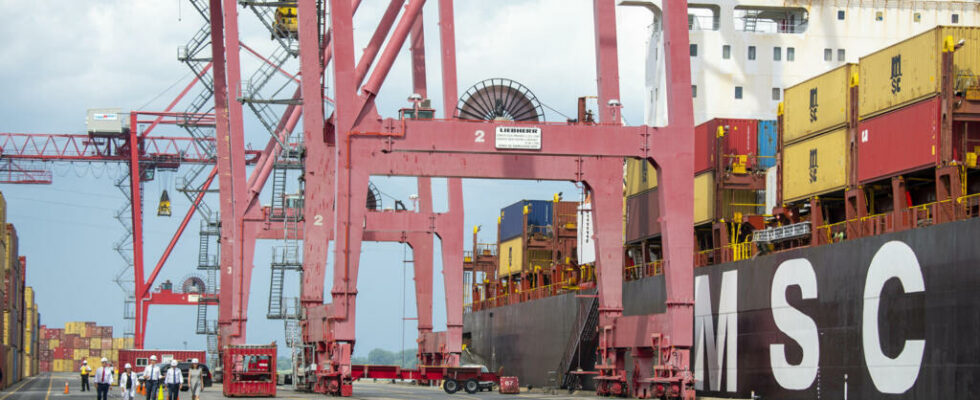At both ends of Canada, the ports of Vancouver and Montreal, among others, are paralyzed. Maritime employers have declared a lockout for staff who unload ships, due to a dispute over the renewal of their collective agreement. No goods can therefore leave or arrive in these hubs, which represents more than three-quarters of maritime trade in the country. The conflict has already been going on for many months.
2 mins
“ Every day there are boats diverted to other ports. Mainly American ports », Notes Julie Gascon, CEO of the Port of Montreal, where 1,200 employees work. The choice of shipping companies to avoid Montreal began even before Sunday, November 10 and the lockout – temporary closure decided by the employer due to a social conflict. The activity of this hub for the East of Canada fell by 24%. Indeed, since January, the management and union parties have not agreed on the renewal of the collective agreement and several strikes have taken place, explains our correspondent Pascale Guéricolas.
“ We consider that it is a group, coordinated, planned attack (by the management) in order to increase pressure on the government so that it intervenes in our file », Michel Murray, advisor to the CUPE Longshoremen’s Union, declared to the press on Monday. He believes that if the Association of Maritime Employers (AEM) “ had respected » the negotiation process, « we would have found solutions and we would have avoided a conflict at the port of Montreal “.
Canadian government called to get involved in conflict
For Jacques Renaud, professor of logistics, 40% of Canadian international trade could suffer from conflicts at the ports of Montreal and Vancouver: “ It’s really Asian imports and our transfers with Europe that are likely to be a little more affected, so certain high-tech products, export grains for external markets may have to wait a little longer. in warehouses. »
Very worried about the possible consequences on assembly lines, manufacturing companies that depend on the arrival of parts are calling for intervention from the Canadian government to put an end to the conflict. A government which, for the moment, remains silent.
